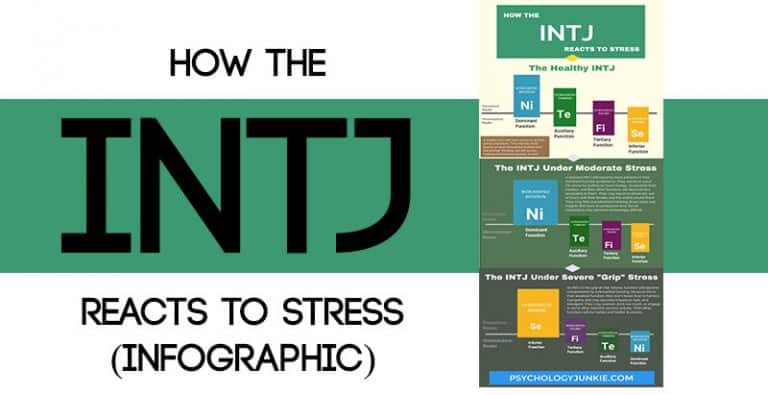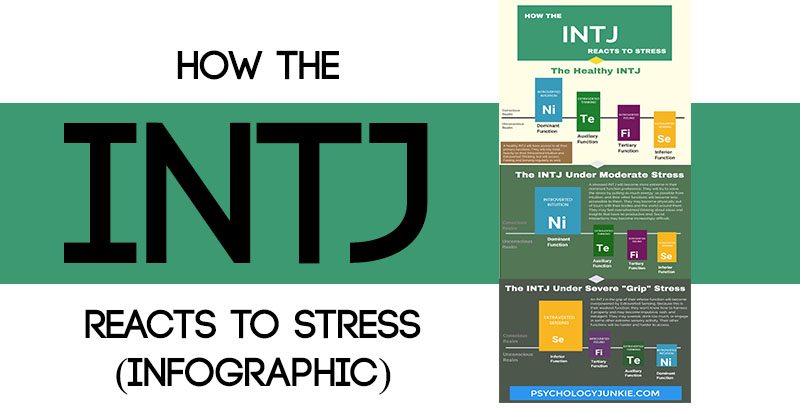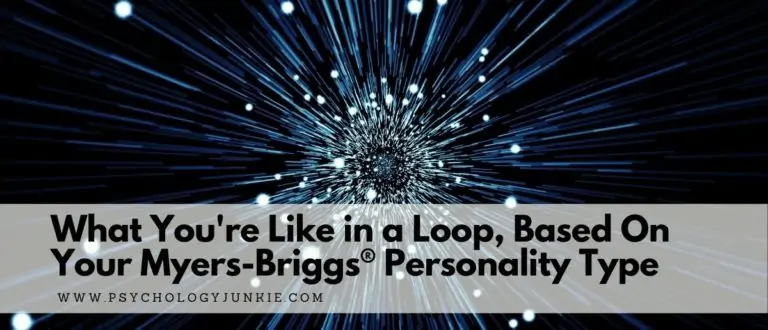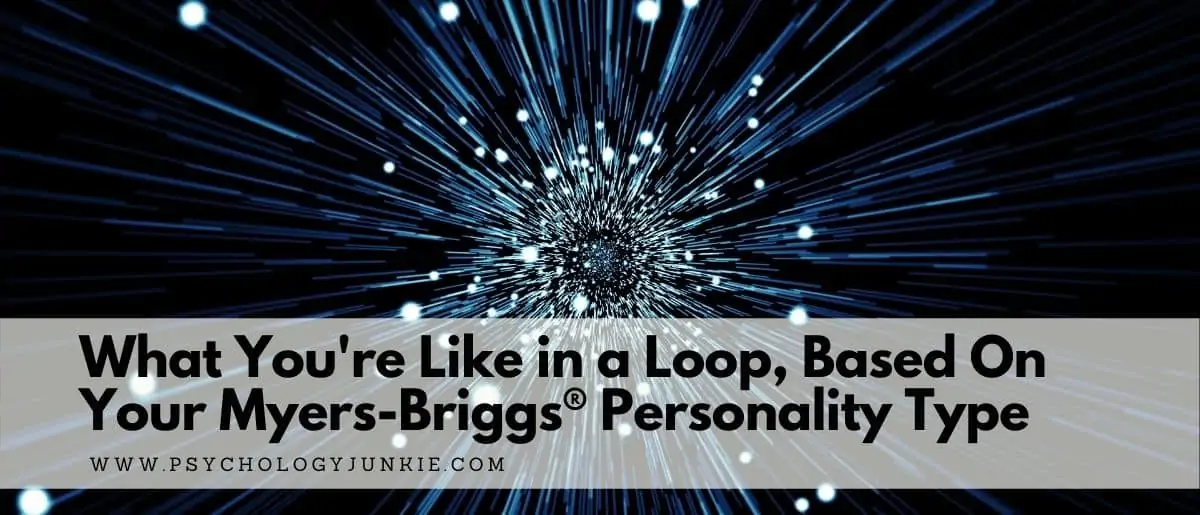Your Skills of Persuasion, Based On Your Myers-Briggs® Personality Type
Some people can sell you on anything. Others… not so much.
And yet, here we are—constantly trying to convince each other to see the world the way we do. Your persuasion style isn’t just about how smooth you are with words; it’s shaped by how your brain works, what you value, and, let’s be honest, whether or not you have the patience to argue with people in the first place.
So, let’s take a look at how different personality types try to win people over.

The Four Modes of Persuasion:
Over two thousand years ago, the Greek philosopher Aristotle identified four distinct approaches to persuasion: Logos, Pathos, Ethos, and Kairos. We still use these terms today to analyze arguments and to understand the dynamics of persuasive conversations. What do these three terms mean?
Logos: Logos is the use of logical reasoning or evidence to convince an audience. It is the art of using facts, figures, and sensibility to connect ideas and convince others.
Example: Let’s say you wanted to persuade your friends to invest in a certain stock. You could present facts and figures that show the potential of the company, compare it with similar stocks, or demonstrate historical evidence of its success.
Pathos: Pathos is the use of emotions as a means to persuade. People skilled in Pathos persuasion can tap into others’ emotions and connect with them and their humanity and deeply-held feelings.
Example: You want your friend to support an animal rights organization. You can appeal to your friend’s fundamental feelings of compassion and empathy with stories of how animals suffer from mistreatment.
Ethos: Ethos is persuasion through credibility, trust and reputation. People with strong ethos look to earned credentials, lived experiences, and qualifications.
Example: You’re trying to persuade a colleague to invest in a business venture. You can draw on your experiences as an entrepreneur and demonstrate your track record of success with other projects you’ve undertaken.
Kairos: Kairos is the use of timing to persuade. It is understanding when it is best to make arguments and how to choose the right moment.
Example: You’re trying to convince your boss to give you a raise. You need to time your request right, such as after you’ve delivered on a big project or gotten positive feedback from colleagues and customers.
Not sure what your personality type is? Try out our most highly recommended personality questionnaires:
- You can take our free personality questionnaire here
- You can take Personality Hacker’s personality questionnaire.
- You can take the official Myers-Briggs Type Indicator® for $49.95
This article contains an affiliate link to a questionnaire on Personality Hacker. If you purchase one of their courses, I get a small kickback that I can use to pay for hosting and other demands of this site. I only recommend courses I love.
Table of contents
- The Four Modes of Persuasion:
- The ISTJ: “Here Are the Facts. The End.”
- The ISTP: “I’m Only Going to Say This Once.”
- The ESTJ: “I’m Right, and You’ll Thank Me Later.”
- The ESTP: “Trust Me, You’re Gonna Love This.”
- The ISFJ: “I Swear I’m Not Manipulating You (But Also, You’re Definitely Coming to My Side)”
- The ISFP: “I’m Not Trying to Convince You, But You’ll Probably End Up Agreeing With Me Anyway”
- The ESFJ: “I Will Use the Power of Friendship to Win This Argument”
- The ESFP: “You Know You Want To”
- The INTJ: “I Have Foreseen Every Objection. You Will See the Light.”
- The INTP: “Let’s Break This Down Logically Until Your Brain Melts”
- The ENTJ: “Here’s the Plan. Try to Keep Up.”
- The ENTP: “You’re Wrong, But I’ll Let You Figure That Out Yourself.”
- The INFJ: “You’ll Come Around Eventually.”
- The INFP: “Listen to Your Heart (Because It Agrees With Me).”
- The ENFJ: “If You Don’t Agree With Me, Your Future Self Will Regret It.”
- The ENFP: “Let’s Explore All the Possibilities (But Mostly Mine).”
- What Are Your Thoughts?
Estimated reading time: 21 minutes
The ISTJ: “Here Are the Facts. The End.”
Strengths of Persuasion:
ISTJs are the human embodiment of “because it’s the rules.” They don’t just pull arguments out of thin air—they’ve done the research, checked the sources, and cross-referenced historical precedent. You’d better believe they’ve got receipts. When an ISTJ makes their case, it’s built like a brick house: solid, fact-based, and absolutely unmoved by your fragile human feelings.
If you try to argue with an ISTJ using vibes and intuition, they will stare at you the way a computer screen does when it’s frozen. Just… absolute stillness. Maybe a blink. But inside? They’re buffering. Because what you just said? Makes no sense to them.
ISTJs love logic (logos) and credibility (ethos). Their strategy? Lay down the facts, show their experience, and let reality do the talking. You either see the light or you don’t, and they’re not about to beg you to agree with them.
Weaknesses of Persuasion:
Subtlety? Charm? Emotional finesse? Yeah… not their strong suits. ISTJs tend to state the truth the way a robot would: blunt, efficient, no sugar-coating.
The problem? Humans are not logic machines. We are squishy, emotional disasters who like to feel understood before we agree with something. ISTJs often forget that if people are emotionally invested in their beliefs, they need an emotional bridge before they’ll consider cold, hard facts. Otherwise, it feels like getting hit in the face with a truth brick.
How They Can Improve:
Try this wild concept: acknowledge feelings. Maybe—just maybe—warm people up a little before hitting them with the data dump. A spoonful of sugar and all that.
The ISTP: “I’m Only Going to Say This Once.”
Strengths of Persuasion:
ISTPs are surgical with their words. They don’t waste time with sappiness, grand speeches, or emotional appeals. When they persuade, they do it with one perfectly timed, logically airtight statement that makes you stop in your tracks.
Their persuasion style is a mix of logic (logos) and impeccable timing (kairos). They know exactly when to drop a truth bomb for maximum impact. And unlike some types who enjoy long-winded debates (looking at you, ENTPs), ISTPs prefer the one-hit knockout.
Example:
Person: “But I feel like this approach might not be the best—”
ISTP: “It works. Your feelings don’t change that.”
Person: (speechless)
And that’s it. Argument over. The ISTP has left the chat.
Weaknesses of Persuasion:
The problem? They’re a little too good at not caring. Emotions are not their thing, and they have zero patience for irrationality. If someone starts crying mid-argument, the ISTP will stare at them like a raccoon caught in a flashlight.
They also tend to assume that once they’ve made a logical point, the discussion is over. Unfortunately for us Thinking types, humans don’t work that way. They need engagement, connection, a reason to care. An ISTP will make a solid argument, drop the mic, and walk away—only to be baffled when the person keeps arguing like they didn’t just hear the most logical statement in the universe.
How They Can Improve:
People don’t just need to understand—they need to feel understood. So, ISTPs, maybe… nod occasionally? Ask a question? Pretend emotions make sense? Small changes. Big impact.
The ESTJ: “I’m Right, and You’ll Thank Me Later.”
Strengths of Persuasion:
ESTJs don’t argue—they declare. They walk into a conversation like a CEO walks into a boardroom, lay out their plan, and delegate to make sure everyone is on board. ESTJs exude authority. They’re persuasive through sheer confidence, experience, and a no-nonsense attitude that makes you feel like not agreeing with them is a bad life choice.
Their persuasion style is a mix of credibility (ethos) and results-based logic (logos). They don’t deal in theories or “maybes”—they want proof, metrics, and outcomes. They are the “show me the numbers” people.
If you need someone to convince an entire team to follow a plan, an ESTJ will handle it before lunch.
Weaknesses of Persuasion:
You know that moment when someone is so direct it feels like getting hit with a sledgehammer? That’s the ESTJ approach. They are not known for their gentle delivery. If they think you’re wrong, they will tell you—with zero hesitation.
How They Can Improve:
Step one: pause. Step two: breathe. Step three: actually listen to the other person instead of mentally preparing a counterargument while they talk. I know, I know—it’s painful. But it works.
The ESTP: “Trust Me, You’re Gonna Love This.”
Strengths of Persuasion:
ESTPs could probably convince you to buy a yacht while you’re drowning in student loans. They are that good. They have charm, they have presence, and they know exactly how to make an idea sound fun, exciting, and undeniably like the best option.
Their persuasion style is all about timing (kairos), logic (logos), and emotional appeal (pathos). They don’t just state facts—they sell them. They read the room, adapt on the fly, and use humor, charisma, and sheer boldness to get people on their side.
An ESTP won’t just tell you why their plan is good—they’ll make you feel why it’s good. You’ll be so swept up in their energy, you won’t even realize you’ve already agreed.
Weaknesses of Persuasion:
Here’s the thing: ESTPs are so good at persuasion that sometimes they… bend reality a little. They might exaggerate details, conveniently leave out less appealing facts, or say whatever gets the best reaction in the moment. Not out of malice—they just love a good sales pitch.
They can also struggle with patience. If they don’t see immediate buy-in, they’ll switch tactics or move on instead of sticking it out and building long-term credibility.
How They Can Improve:
Two words: fact-check yourself. People love your charm, but they also need trust. Be persuasive, be fun—but don’t overpromise just because it sounds good in the moment.
The ISFJ: “I Swear I’m Not Manipulating You (But Also, You’re Definitely Coming to My Side)”
Strengths of Persuasion
ISFJs don’t argue. They gently guide. They know how to make you want to agree with them, not through force, but through warmth, consistency, and an almost supernatural ability to make you feel like a monster if you don’t see things their way.
They are masters of emotional appeal (pathos) and credibility (ethos). They don’t just make their case—they make you feel it. They tell stories, they bring up real-life examples, they reference past experiences in a way that makes their argument feel familiar, safe, and …honestly…you really just don’t want to disappoint them.
Weaknesses of Persuasion
ISFJs struggle when faced with aggressive or purely logic-driven arguments. If someone comes at them with hard facts and rapid-fire debating, their brain might just… shut down. You know that moment when you think of the perfect comeback three hours after a conversation ends? That’s an ISFJ in every high-pressure debate.
Also, while they’re amazing at soft persuasion, they aren’t always great at direct confrontation. If they feel like their opinion is being bulldozed, they might just withdraw instead of pushing back. Which is fine… until they start resenting the fact that they never actually got their point across.
How They Can Improve
ISFJs, you don’t have to avoid conflict like it’s a bear in the woods. Stand your ground a little. Also, if someone hits you with an overwhelming logical argument, don’t panic—just ask them to slow down. You don’t have to have all the answers right now.
The ISFP: “I’m Not Trying to Convince You, But You’ll Probably End Up Agreeing With Me Anyway”
Strengths of Persuasion
ISFPs are the human version of “lead by example.” They don’t shove their opinions down anyone’s throat. Instead, they live their truth so unapologetically that people start questioning their own choices.
They persuade through authenticity (ethos) and emotional resonance (pathos). People listen to them because they’re real—they don’t fake enthusiasm, they don’t argue for the sake of arguing, and they don’t try to be anyone they’re not. That kind of sincerity is magnetic.
If an ISFP really wants you to see their perspective, they won’t debate you—they’ll show you. They’ll create something meaningful, tell a story, or just exist in a way that makes you rethink everything.
Weaknesses of Persuasion
Debating? Not their thing. If someone tries to argue with them aggressively, their soul leaves the chat. They don’t enjoy verbal sparring, and if they sense someone is trying to force them into a different opinion, they’ll dig in their heels out of pure spite.
They also tend to struggle with articulating their ideas in a structured way. They know what they mean, they feel what they mean—but getting it into words? That’s another story. If you’ve ever watched an ISFP try to explain something and get visibly frustrated because their words aren’t doing their emotions justice, you know this struggle is real.
How They Can Improve
Take your time, but don’t be afraid to articulate your ideas clearly—even if it feels awkward at first. You don’t have to be a master presenter, but try to get some bullet points across anyway.
The ESFJ: “I Will Use the Power of Friendship to Win This Argument”
Strengths of Persuasion
ESFJs are basically the social glue that holds the world together, and they know how to use that to their advantage. They don’t just persuade—they enlist. They rally people to their cause, make them feel heard and included, and build a sense of community around their ideas.
They excel at emotional appeal (pathos). When they argue, it’s rarely just about facts—it’s about values. They bring in real-life examples, personal experiences, and (maybe) some peer pressure to get people on board.
And if they really want to win you over? They’ll make sure you feel how much they care. You’re not just agreeing with an ESFJ—you’re joining a movement.
Weaknesses of Persuasion
Sometimes, they take it too personally. If you reject their argument, they might feel like you’re rejecting them. And when they get frustrated, they might lean too hard into “but everyone else agrees with me,” which—while effective socially—doesn’t always hold up as a logical argument.
Also, if people don’t immediately agree with them, ESFJs can get passive-aggressive. You’ll know they’re mad, but instead of arguing, they’ll just hit you with an oh, okay… I just thought you cared about [insert deeply personal value here] and walk away. And now you feel bad even though you didn’t do anything wrong.
How They Can Improve
ESFJs, you are warm and persuasive without needing to guilt-trip people. Trust that your arguments stand on their own—no need to make it personal. Also, sometimes? People just disagree, and that’s okay. (I know. Breathe through it.)
The ESFP: “You Know You Want To”
Strengths of Persuasion
ESFPs could convince you to make terrible life choices and you’d enjoy every second of it. They don’t just argue—they win you over. They make ideas exciting, and they know exactly how to hype people up until agreeing with them feels like the most fun option.
They use emotional appeal (pathos), timing (kairos), and a whole lot of charisma. If an ESFP wants you to see their point of view, they will joke, charm, and dazzle their way into your brain until you’re nodding along before you even realize what’s happening.
Weaknesses of Persuasion
Subtlety? Restraint? Not really their thing. Sometimes they get too caught up in their own excitement and start over-promising things that are perhaps too taxing in the long run.
Also, if someone challenges them with dry, academic logic, their enthusiasm can fizzle out fast. If an ESFP feels like the other person is being boring, they might just disengage rather than pushing their point.
How They Can Improve
ESFPs, your persuasion skills are top-tier—but make sure you’re backing up the hype with actual substance. Keep the energy, but don’t overpromise just because it makes a better pitch.
The INTJ: “I Have Foreseen Every Objection. You Will See the Light.”
Strengths of Persuasion
INTJs don’t argue; they strategize. By the time they present their point, they’ve already thought through every possible counterargument, patched up any holes in their reasoning, and constructed a near-bulletproof case. Debating an INTJ feels less like a conversation and more like being cross-examined by an omniscient prosecutor.
They thrive on logic (logos) and strategic timing (kairos). They don’t just throw information at you—they wait for exactly the right moment, drop the perfect argument, and watch as your resistance crumbles under the sheer weight of inevitability.
An INTJ trying to persuade you is like a chess master explaining why your king is already trapped. They’re not forcing you to agree—they’re just patiently showing you that, mathematically speaking, you’re wrong.
Weaknesses of Persuasion
For all their brainpower, INTJs can be… a little intimidating. They can come across as robotic, detached, or (let’s be real) condescending. If someone’s making an emotional argument, an INTJ is more likely to analyze their flawed reasoning than acknowledge their feelings.
They also have a tendency to assume that if they’re right, people will obviously agree with them. (Spoiler: That’s not how humans work.) They forget that persuasion isn’t just about having the best argument—it’s about getting people to want to listen.
How They Can Improve
INTJs, consider this: friendliness is not a weakness. A little warmth, a little patience, maybe even (gasp) acknowledging emotions—it won’t kill you. If people like you, they’re way more likely to agree with you.
The INTP: “Let’s Break This Down Logically Until Your Brain Melts”
Strengths of Persuasion
INTPs are persuasion ninjas. They don’t rely on charm or authority—they rely on pure, unfiltered logic. They’ll question assumptions, poke holes in your argument, and, before you know it, you’ll be doubting everything you thought you knew.
They excel in logic (logos) and theoretical analysis. They don’t just present an argument—they dissect it, flip it inside out, and show you all the hidden layers you didn’t even realize existed. If you’re willing to engage in a deep, intellectual discussion, INTPs will absolutely blow your mind.
Weaknesses of Persuasion
Unfortunately, persuasion is about more than just being right. INTPs get so caught up in analyzing that they forget to convince. They sometimes over-explain, jump between ideas at lightning speed, and accidentally overwhelm people with information.
They also struggle with certainty. They’re naturally skeptical, even of their own ideas, which can make them sound hesitant. If an INTP is trying to persuade you, they might also spend half the time arguing against themselves. It’s an experience.
How They Can Improve
INTPs, clarity is your best friend. Break things down simply—not because people are dumb, but because their brains don’t work at 400mph like yours does. And commit to your argument instead of getting lost in an existential rabbit hole mid-debate.
The ENTJ: “Here’s the Plan. Try to Keep Up.”
Strengths of Persuasion
ENTJs are powerhouses when it comes to persuasion. They don’t argue—they present a vision so bold, so well-planned, that people just sort of assume they should follow along.
They thrive on credibility (ethos) and logic (logos). ENTJs speak with confidence, authority, and the kind of leadership presence that makes people go, “Wow, okay, maybe they know something I don’t.” They know how to take command of a conversation, outline clear goals, and make their arguments feel inevitable.
Weaknesses of Persuasion
The problem? ENTJs don’t always listen. They’re so focused on their strategy that they can bulldoze through objections without actually addressing them. When they’re unhealthy, they assume that if people disagree, they’re just wrong—and they tend to get frustrated when people resist an obviously superior plan.
They also struggle with emotional arguments. If someone says, “I just don’t feel right about this,” an ENTJ will stare at them like they just spoke in Morse code. Feelings are not a valid argument in their world.
How They Can Improve
ENTJs, your confidence can be your greatest strength—and your greatest weakness. Take a breath. Ask questions. Give people space to process instead of assuming they’ll immediately fall in line. Sometimes, persuasion isn’t about having the best plan—it’s about making people feel like they belong in it.
The ENTP: “You’re Wrong, But I’ll Let You Figure That Out Yourself.”
Strengths of Persuasion
ENTPs don’t just debate. They play. They challenge assumptions, poke at weak points, and use sheer enthusiasm to drag people into wild, mind-expanding conversations. Talking to an ENTP is like getting caught in a tornado of ideas and “What Ifs?”—you never quite know where it’s going, but it’s fun.
They use logic (logos), timing (kairos), and emotional appeal (pathos)—often all at once. They’re fast, witty, and flexible. If one argument isn’t working, they’ll pivot mid-sentence and hit you with another angle. They make persuasion feel like a game, and if you’re not careful, you’ll find yourself agreeing with them just because the ride was so entertaining.
Weaknesses of Persuasion
Here’s the thing: ENTPs are really good at breaking things down, but not always great at building them back up. They can pick apart an argument until there’s nothing left standing… and then leave it there, without offering a clear alternative.
They also love to argue. Sometimes, they don’t even care if they win—they just enjoy the debate. This can make them seem unfocused, or worse, insincere. People might feel like they’re just playing devil’s advocate instead of actually believing what they’re saying.
How They Can Improve
ENTPs, sometimes you have to commit to an argument instead of just exploring it. Not every discussion has to be a game of mental gymnastics. If you really want to persuade people, make sure they know you actually care about the point you’re making—not just about the debate itself. And make sure to listen. Sometimes you can get caught up in formulating your own arguments while the other person is talking without actively listening. This will weaken the credibility of what you have to say because you might be addressing the wrong points.
The INFJ: “You’ll Come Around Eventually.”
Strengths of Persuasion
INFJs don’t push. They plant seeds. They drop an idea into the conversation, let it settle into your subconscious, and then casually check back in three months later when you’ve mysteriously come to the same conclusion they originally suggested.
They work on emotional connection (pathos) and big-picture insight to timing (kairos). INFJs don’t just argue their point—they paint a compelling picture of why it matters. They’ll piece together patterns, intuit hidden motivations, and say eerily accurate things like, “I just have a feeling you’ll regret this decision in about two years.”
And somehow? They’re usually right.
Weaknesses of Persuasion
INFJs are subtle, which is great for long-term influence but terrible for in-the-moment debates. If someone steamrolls them with aggressive logic or rapid-fire rebuttals, they might freeze up, go silent, and then spend the next several days mentally composing the perfect counterargument.
Also, because they see so many perspectives at once, they can hesitate to assert their own. Instead of saying, “Here’s why I’m right,” they’ll say, “I mean, I see both sides, but…” which can make them seem uncertain—even when they know they’re right.
How They Can Improve
INFJs, you don’t have to wait for people to eventually realize you were right. Be a little more assertive. Say what you mean, when you mean it. Your quiet wisdom is powerful—but only if you actually share it before the moment passes.
The INFP: “Listen to Your Heart (Because It Agrees With Me).”
Strengths of Persuasion
INFPs don’t just argue a point—they believe in it. And that belief is contagious. They’re masters of emotional resonance (pathos) and authenticity (ethos).
If an INFP wants to convince you of something, they won’t bombard you with stats or logic. They’ll tell a story. They’ll paint a picture so meaningful that you’ll feel it in your soul. They make you care—not just about the argument, but about the deeper values behind it.
And if you try to argue back? Good luck. INFPs are so deeply convicted in their beliefs that challenging them feels like trying to punch a cloud—it just makes you feel bad about yourself.
Weaknesses of Persuasion
INFPs struggle when faced with purely logical, impersonal debates. They argue from the heart, and if someone hits them with a “Yeah, but where’s the evidence?” they might just short-circuit. The truth is, they might have the evidence stored away somewhere in their mind, but it’s hard for them to access facts in a heated moment on the spot.
Also, because they’re so open-minded, they sometimes second-guess themselves mid-argument. They’ll be passionately defending their stance one minute, and then suddenly say, “Wait… maybe you have a point,” which can make them seem indecisive—even when they actually do believe in their argument.
How They Can Improve
INFPs, emotions are powerful—but so is structure. Back up your points with clear reasoning so people can follow your train of thought. Jot down a few points ahead of time to help you jog your memory. Also, you don’t have to entertain every counterargument. It’s okay to stand firm.
The ENFJ: “If You Don’t Agree With Me, Your Future Self Will Regret It.”
Strengths of Persuasion
ENFJs have presence. When they argue, it feels important. They persuade through emotional connection and appeal (pathos) and charismatic leadership (ethos). They don’t just make a point—they make you feel like joining their cause is the right thing to do.
ENFJs also have a powerful ability to read the room. They know what makes people tick, and they tailor their persuasion style accordingly. Need a snack first? They’ve got them. Need a pep talk? They’ll hype you up. Need someone to subtly guilt-trip you into agreeing? They can do that too.
At their best, ENFJs inspire people to be their best selves. At their worst, they manipulate people with laser sharp emotional insight.
Weaknesses of Persuasion
ENFJs can be too persuasive. They’re so good at rallying people that they sometimes don’t notice when someone’s just nodding along to get them to stop talking.
They also have a hard time when people resist their arguments for no logical reason. If someone simply refuses to engage, an ENFJ will stare at them like a malfunctioning robot, trying to compute how anyone could ignore such an obviously compelling argument.
How They Can Improve
ENFJs, your passion is your power—but not everyone wants to be recruited into your cause. If someone isn’t budging, it’s okay to let it go.
The ENFP: “Let’s Explore All the Possibilities (But Mostly Mine).”
Strengths of Persuasion
ENFPs don’t just persuade—they entertain. Their arguments are dynamic (kairos), passionate (pathos), and absolutely overflowing with enthusiasm. They make their ideas sound so exciting that you’ll want to agree just to see what happens next.
They also have a gift for improvisation. If you counter their argument, they’ll pivot, reframe, and adapt until they find a way to make you see their point. Talking to an ENFP is like being caught in a whirlwind of possibility—you’re not sure where you’re going, but it’s definitely not boring.
Weaknesses of Persuasion
ENFPs have too many ideas. Instead of sticking to one clear, focused argument, they’ll bounce between five different angles, excitedly connecting dots that no one else can see. By the time they finish talking, you’ll either be completely sold… or hopelessly lost.
Also, because they love exploring ideas, they sometimes forget to commit to them. If they’re challenged too hard, they might backpedal into “Okay, but what if we looked at it from a different perspective?” which can make them seem indecisive—even when they actually do believe in their point.
How They Can Improve
ENFPs, clarity is your friend. Stay on one track before hopping to the next. Your enthusiasm is infectious—but people need structure to follow your ideas instead of getting lost in the whirlwind.
What Are Your Thoughts?
Did you enjoy this article? Would you like to share your own experiences, insights, and opinions? Let us know in the comments!
Find out more about your personality type in our eBooks, Discovering You: Unlocking the Power of Personality Type, The INFJ – Understanding the Mystic, The INTJ – Understanding the Strategist, and The INFP – Understanding the Dreamer. You can also connect with me via Facebook, Instagram, or Twitter!















The INTP part is spot on for me! Logic usually, imagination sometimes depending on the topic. Sadly for a lot of issues, people don’t care about facts and will use feelings, despite evidence going against them, which is obviously infuriating for me.
Quite insightful. This article presents a variety of well-articulated information. Can’t wait for more content from Ms. Storm.
Hi Evan! Thanks so much. It’s always so encouraging to get positive feedback from individuals like you.
This article is very enlightening. Wonderful information for anyone wanting understanding for themselves and others. Hopefully in terms of building insight in becoming more tolerant. Which would make for a better world for everyone.
Thanks for making this available.